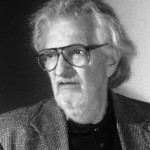Frederick W. Bassett
Frederick W. Bassett grew up close to nature in Alabama. As a boy, he would camp in the wild for days, living off the land like the old woodsmen. He also loved horseback riding and often rode late into the night on dirt roads that crisscrossed the rural landscape. Then he became serious about his place in the world and focused his studies on religion and philosophy within the broader context of evolutionary anthropology. After earning a Ph.D. from Emory University in Biblical literature, he taught in the Division of Humanities at Limestone College in Gaffney, SC, where he introduced several interdisciplinary courses into the curriculum. Always a lover of literature, he turned to creative writing late in life. He has two books of “found” poetry, Awake my Heart: Psalms for Life and Love: The Song of Songs as well as two collections of mostly narrative poetry, The Horse Dreamer and The Old Stoic Faces the Mirror. His poems have also appeared in more than 100 publications. He has two novels of a planned trilogy: South Wind Rising and Honey from a Lion. He is currently working on a poetry collection of “other voices” and his third novel which has a working title of Lo, the Winter is Past. Now retired from academia, he lives with his wife Peg in Greenwood, SC, near their grandchildren.
• • • • •
What’s on your nightstand right now?
A very fine memoir, H is for Hawk by Helen McDonald. I learned a lot about falconry, including the fact that our red-tailed hawks are trained for hunting in Maine. I like the fact that in Maine falconers can trap a young red-tailed hawk, train it, and fly it one year. Then they must set the hawk free. I also enjoyed getting to know a significant part of Helen McDonald’s own story.
What book made the biggest impression on you as a kid?
The Eyes of the Woods by Joseph A. Altsheler. Growing up in rural Alabama, I was an outdoors boy and read very little. My father initiated me into the primal culture of subsistence hunting and fishing when I was five. Then we moved from the farm to town when I was nine. Still, the call of the wild pulled me from the edge of town into the nearby patches of the wild, where I explored the forests and swam in the creeks. When I was about twelve, I discovered The Eyes of the Woods, one of a series of books by Altsheler about a band of five woodsmen who shunned the frontier settlement of 18th century America for its vast, virgin forest. Like the Native American tribes who lived in those forests, these five men were totally at home there, living independently off the land. I envied those woodsmen and tried to follow their way of life during my camping trips in the wild until I left for college. Then I set off on a long journey in academia, earning four degrees in the process. Now I enter the wilds as a sanctuary, not a place to live off the land. Here’s a poem, published by Birmingham Arts Journal, that’s something of a flashback on those early days:
Monkey Mind
Heraclitus tells us we can’t step
in the same river twice.
But what would he say about the same
river stepping in me twice?
It happened just this morning.
But wait! Years ago, I’m waist deep
in the Tallapoosa River on a starless night,
flashlight in one hand, rifle in the other,
wading across to Hester’s Island.
On a rock above the swirling shoals,
a bobcat crouches, hidden,
until my roving spotlight shatters
the darkness between us.
Now about this morning. My monkey
mind is jumping all over the place.
High school football practice
in late August, helmets cracking,
boys groaning, retching in the grass.
A seminar on the Dead Sea Scrolls
at Emory University,
Emanuel Ben Dor’s voice barking
the Hebrew, resurrecting
those ascetic Essenes, word by word.
Then my mind squats like a frog
in utter stillness. For What?
Certainly not the yogi’s nothingness.
Out of the stillness, the Tallapoosa rises.
And there, enthroned above the roiling
river of my youth, that crouching bobcat
quickens yet again the blood of a boy
who once ran wild and unfettered.
